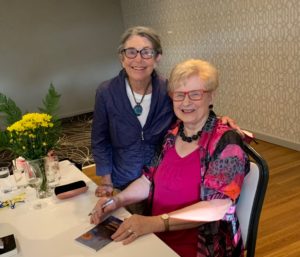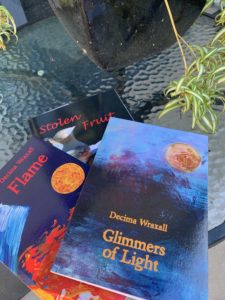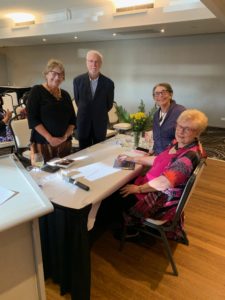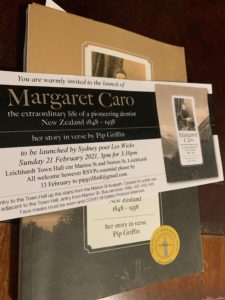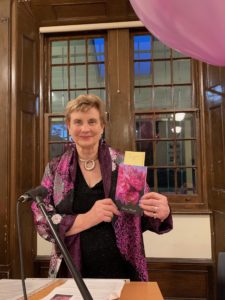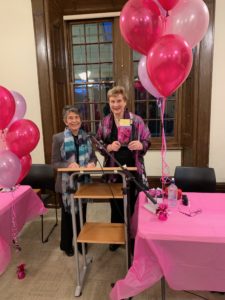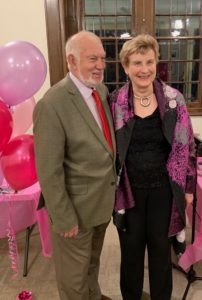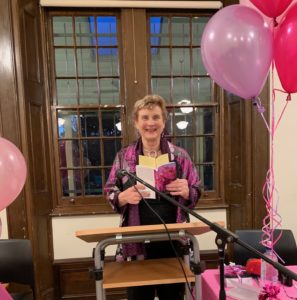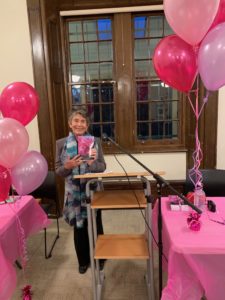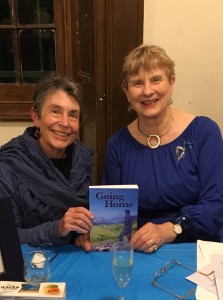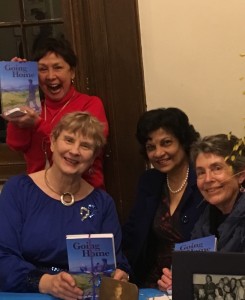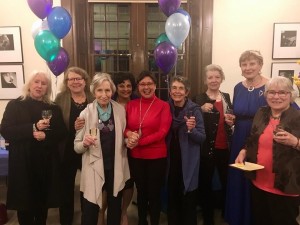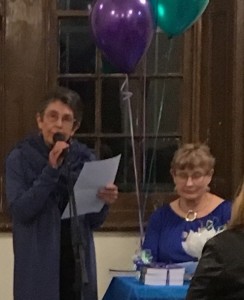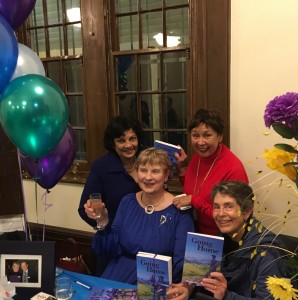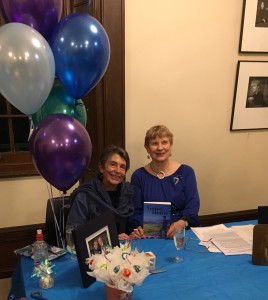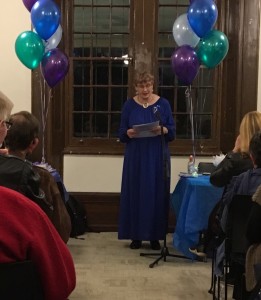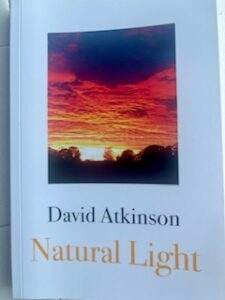
Sunday afternoon, 1st December 2024 was a celebratory afternoon for the launch of David Atkinson’s new poetry collection Natural Light . We gathered at Hannah’s Bar in Beecroft. The gathering included family, many friends and poets from the U3A Poetry Appreciation Group, from the Pennant Hills Poetry Group and many other interested poetic friends . As MC i welcomed everyone and introduced the teacher and poet Richard Clark who launched Natural Light. In his launching speech, Richard described some of the poetic techniques and read poems to show these. It was an interesting speech and he gave some very expressive readings of David’s poetry. David read some of his poetry and thanked all those who have supported him on his journey. And then we enjoyed refreshments and had a great chat all together .
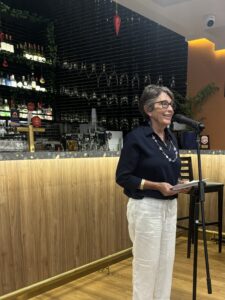
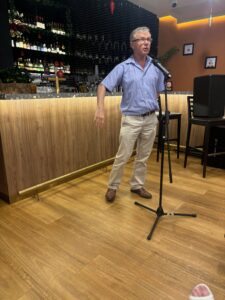
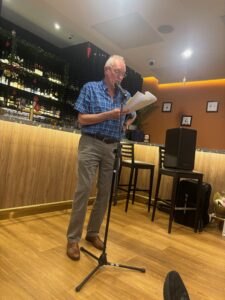
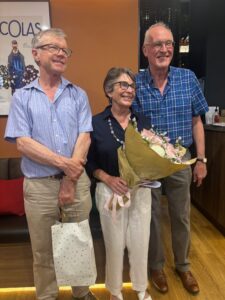
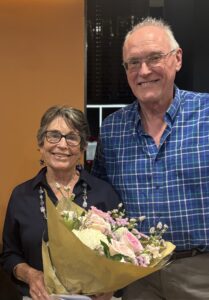
Run Sheet for David’s Natural Light
- Good afternoon everyone. My name is Colleen Keating and i am a poet and a writing friend of David.. Welcome everyone. It is good to be here together for this celebration . and what a wonderful gathering we are. The bringing forward of a book is a long journey and worth celebrating and your presence is an honour to David and to poetry.
- We will just take a moment to gather ourselves and i ‘d like to acknowledge the traditional owners of the land on which we meet today , the Wallumedegal people of the Eora nation and pay respects to the first story tellers and to the elders past, present and emerging.
- (a)Housekeeping – there is a bathroom directly across the courtyard but only one there. There are more bathrooms down the stairs and inside the centre or, alternatively, down one level via the lift. Please just look around and check if anybody needs a seat if you can stand.
- (b)Order of events I will introduce Richard Clarke. who will launch David’s new book . Richard will speak and read a few selected poems of David’s
- (c)Then David as poet will speak and share some of his poems. At the end of the formal part we will spread out and wait a few minutes for refreshments to be organised And we can catch up with friends and celebrate this special occasion . The books will then be on sale for 25 dollars and David will be outside very happy to sign it. We are all in for a treat.
3. “It is now my pleasure to introduce Richard Clarke to launch David’s book. Richard says he was fortunate to have been born to literature-loving parents and to have married an avid reader, and since retirement to have been invited by David to join both the U3A poetry appreciation group hosted by Wendy Walker in Eastwood ,of which many of that group are here today and the poetry writers’ group convened by David himself in Pennant Hills. And most of us are here to celebrate with David. Richard was an English teacher for forty years, He enjoyed nothing better than exploring great poems with his classes and imploring the students to write their own.Often in our groups we defer to Richard as he is an encyclopaedia of knowledge on poets, their background history, and grammar in general.. Now that he is writing his own poetry Richard says he is beginning to understand why many of his students found it difficult to turn theory into practice. But Richard powers ahead with his own writing. I remember when he had his first poem published and we were very excited and now in a short time his poems have been published in three countries. so we call him now an Internationally published poet. Please welcome Richard.”
superb Fairy wrens pg 47
4. Thank you Richard and now please welcome David to tell you about his poetic journey and read you some of his selected poems.
5. Thank you David .
6. That concludes the formal part of the afternoon. Please relax now and spread outside and buy a book. It will take 5 minutes or so while drinks and afternoon tea are set out.
Poems to be read, or referred to, by Richard
Villanelle of the Drought (p.127)
Assembly Machinations (p.53)
Sonnet of the Fire (p.29)
Searching the Storm (p.48)
Adrift in the Desert (p.108)
The Ambivalence of Organisms (p.56)
The Challenge of Algebra (p.69)
Of Owl and Eeyore (p.128)
Poems to be read by David
The Old Hume (p.3)
From Impermanence (p.59)
Wedge-tailed Eagle (p.43)
Verandah (p.9)
The Buoyancy of Butterflies (87)
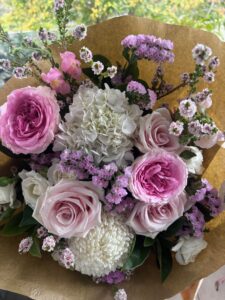
Review by Colleen Keating
of
Natural Light by David Atkinson
“With an acute lyrical touch and an unerring ability to evoke sights, sounds and sensations, David’s poems reveal new depths upon every rereading.” These affirming words by Richard Clark who recently launched ‘Natural Light’, come from an appreciation of the rich use of imagery, and the way in which the poet, speaks to his reading audience .
This new book is David Atkinson’s third published poetry collection after ‘The Ablation of Time’ (202 and ‘Strands and Ripples’, (202 ) both published by Ginninderra Press. David grew up in the Riverina and knowing this the reader can appreciate more the way he pays reverent attention to the landscape, the birds, the sheds, tools, country roads and road kill and the Hume’s long distance journey to connect with the city.
‘Natural Light’ is a striking book, full of remarkable pictures capturing the human condition and the natural world. An example of this where memory gives us movement is from ‘Whipcord’,
Transfixed, we swerve in aversion, wary and watchful,
as the brute, terror of the imagination,
topic of tales, slithers away.
Piques a flashback to that folio of boyhood fears;
an eastern brown slides through a dream.
The Holden accelerates, the small boy braces,
steeled like a vehicular strut, then the weight
of the work boot, as breaks squeal
in a controlled skid through the writhing backbone.
There are poems where David has set himself a task of research of a subject and then works it into a poem. How he enjoys the challenge of different forms of poetry. You can see him working out his poetry to put together a collection of his work that shows variety of subject and form and falling back into the things he loves and is most comfortable with. Hence we are gifted with a book of poetry that surprises wherever you open its pages.
The poems are arranged into six sections: In the first section titled The Scaffold of Time there are moments of reminiscing. One example of this is on a breathless country night as a child, sleeping on the verandah with his family he remembers,
in the open we are kneaded into nature.
The night breathes a soft–hued concerto,
the wildlife variations.’
and
Beyond the strands of ringbarked trees
the muted moon rises
and the stars are glow worms
over the riverine flats.
In ‘Bow Wave’ how wonderful to watch the way the poet shifts us from the country’s hard hot days of washing day to pondering a dream Manly holiday with memory of his mother,
In the freestanding washhouse she launders
the clothes, her farmer husband’s khakis,
reek of the shearing shed and the killing tree.
After igniting the copper, boils the garments
and bed linen; the spit of split kindling,
the flames prancing in the grate.
And then as reader we feel the cool ocean breeze with her dream
the South Steyne churning its bow wave
slamming the subservient wharf.
even as
Her neck sallow, not yet seared swarthy
by the sun, she groans, heaves the bedsheets,
feeds them into the clothes wringer,
hand-operated, the water squeezed down
flowing, gurgling into the drain.
This scene is part of my own memory of helping my mother and grandmother but I wonder what the next generation will picture here. However it is important for it to be remembered.
In the poem ‘Generations of Ritual’, the imagery shows how the fates have determined the change and similarity in lives with the colourful phases,
The pungency of lucerne hay,
the prickle of the fleece’s burrs.
the taste of the moonrise frost
solo star in the top paddock,
In the section, ‘Unswept Wings’ there are many gems including the prize winning poem ‘Gang Gang’,
When you sweep in, deep wing beats,
you skim along the runaway of azalea blooms.
In an ambience of apricity, I observe
your free flight through the bush reserve;
I know why this time you alight alone.
I watch your actor’s bow to the water,
curved beak leading to its cere,
eye staring off across your canopied
territory of eucalypts;
The award-winning poem, ‘Wedge-tailed Eagle
takes us deeper,
In a rhythm of etiolated recall my spirit
aches for the passing of the years.
The fundamentals seem to have been recast,
a perception of having taken
a long journey to the interior.
The moment to expore the season
with Vivaldi, to grasp the assertion,
the fretwork of the river red gum.
At last the opportunity but I am ageing
and my soul yearns for peace.
Time is transient and pitiless;
I must seek out the resting ripple
of the remote and elusive platypus
in the headwaters of the Coxs River
and turn back to accompany you
on your buoyant ascent.
In the section ‘Anchored’, one poem The Challenge of Algebra’ stands out for its thoughtful attention to our wider broken world with the last two tercets,
Faith is a trait which cannot
be contained; it bubbles
and spurts like water
from an underground spring,
from a young maths student pinned
under the earth of Mariupol
Further sections are ‘The Ochre of Dawn’, ‘Light on the Breeze’,
and in the last section titled ‘Interwoven’
I especially appreciate Villanelle of the Drought with
‘the yawl of callous crows; he dreads their shriek
alighting on a victim in the glare.
The stricken ewe has slumped, half-starved and weak
As Richard Clark commented in his launch Atkinson is a master of enjambement and I was interested to spend some time observing his skilful working of this technique and how it draws the reader in. I say this because I especially relate to his portrayed country world of the 50’s with the droughts and struggles, having spent my childhood in the country albeit a different direction The New England Tablelands.
It is an interesting journey to see how the poet comes to terms with his memories and the sense of struggle. He accepts the learnings especially from the birds , their lightness of being and so opening the perspective of being untethered and free. and how he comes to the finality with family that brings him home.
‘Natural Light’ is a worthy collection, full of surprises, poems like gems, some of them have their beauty in the natural light alone,. Others to be given attention, given a bit of spittle, polished, held, contemplating their translucent beauty. Their show of luminance which as poems here illuminates the way.
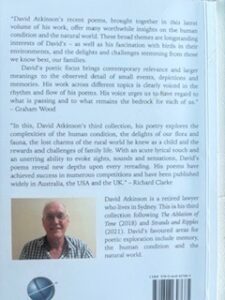
David Atkinson’s recent poems, brought together in this latest volume of his work, offer many worthwhile insights on the human condition and the natural world. These broad themes are longstanding interests of David’s – as well as his fascination with birds in their environment and the delights and challenges stemming from those we know best, our families. – Graham Wood
In this, David Atkinson’s third collection , his poetry explores the complexities of the human condition, the delights of our flora and fauna, the lost charms of the rural world he knew as a child and the rewards and challenges of family life. With an acute lyrical touch and an unerring ability to evoke sights, sounds and sensations. David’s poems reveal new depths upon every rereading. His poems have achieved success in numerous competitions and have beed published widely in Australia , the USA and the UK – Richard Clark




